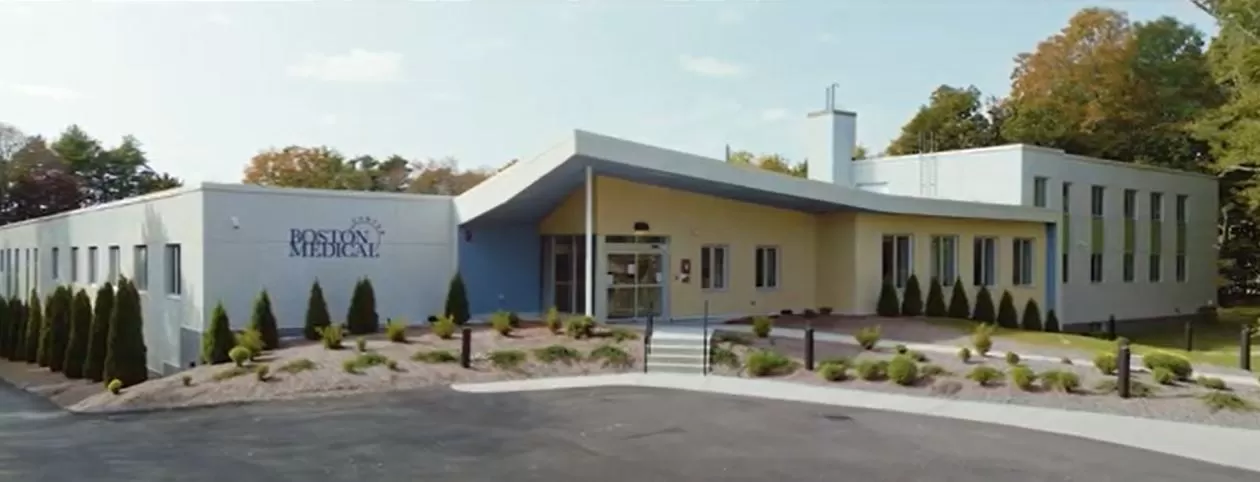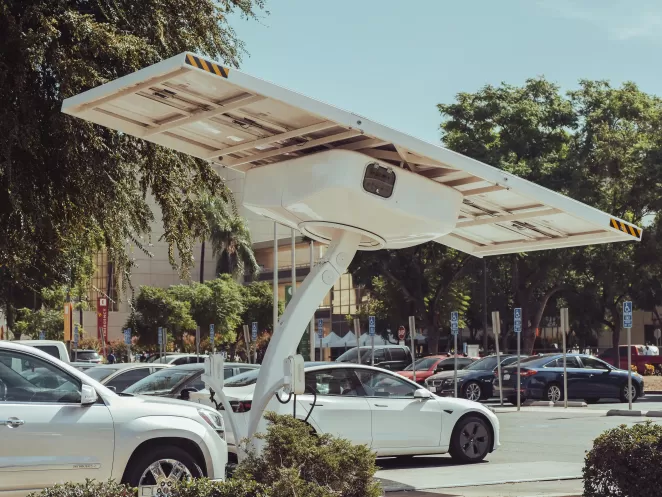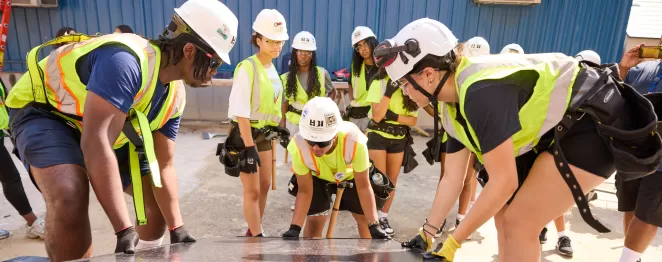“Sustainability IS Healthcare”: Brockton Behavioral Health Center Becomes America’s First Net Zero Mental Health Facility

Droughts, floods, and rising temperatures have consequences for everyone’s mental health. That’s why Brockton Behavioral Center, part of the Boston Medical Center Health System (BMCHS) and an America Is All In member, wanted to become the first net zero mental health facility in the nation.
“The impact of climate change has a disproportionate impact on the patient populations that we serve,” says Bob Biggio, senior vice president and chief sustainability and real estate officer for BMCHS. “And if you look at health care reform nationally, what it’s really asking of the healthcare system is to transform itself, to keep its community healthy.”
Brockton is an 82-bed mental health facility. It serves a diverse population for issues like substance abuse, schizophrenia, anxiety, depression, and other disorders. Housed in a building from the 1960s, there were many challenges in giving it a high-tech environmentally sustainable upgrade.
However, transforming the facility was possible thanks to a variety of funding initiatives. Grants from the Inflation Reduction Act (IRA) and the White House’s Justice 40 program have been crucial in updating locations like Brockton. MassHealth’s funding for new mental health beds also helped cover some costs, as did $12 million from the state legislature and an anonymous donor.
What did that money buy? Geothermal heating and cooling systems, rooftop solar panels that generate 700 kilowatts, a 250-kilowatt storage battery, and an insulation system that makes the building airtight and extends two feet below the foundation. All of this makes Brockton completely carbon neutral. If the total in energy savings of BMCHS’s sustainability efforts thus far are projected over the next twenty years, it could save the system $3 billion.
“That’s $3 billion of care that we will provide to the community in Boston,” says Biggio. “I look at the work we’ve done in the savings we’ve generated as paying for this facility, and this is an example of where that work has enabled us to be able to afford to do something like this, which is increased access and will help the patients that we’re trying to serve.”
Boston’s population is going to need that help. The city’s hospital system is the third-most vulnerable to flooding and storms according to a study published in GeoHealth in 2022. While hurricanes and other storms are usually less frequent and weaker further up the East Coast, that means that cities are less prepared than their Gulf Coast counterparts. Even a Category 2 Hurricane could flood 14 percent of vital Boston roadways necessary for access to hospitals. These hurricanes will increase in number and potency as temperatures continue to climb thanks to man-made climate change. It’s why addressing sustainability is an intricate part of healthcare.
“It’s not that our mission is sustainability, it is that sustainability is healthcare excellence,” says Biggio.
Loss of access from flooding is far from the only climate change problem that affects the mental health of Brockton’s patients. Dramatic weather events caused by climate change have had a marked negative impact on mental health. After the California Camp Fire in 2018, a whopping 67 percent of people at the epicenter reported post-traumatic stress disorder symptoms. Even for people not in the path of a disaster, climate change can cause or worsen anxiety. Rising temperatures are also linked with increased violence and suicides, both of which can accompany mental health crises.
Gary Cohen is the co-founder and president of Health Care Without Harm, a global coalition of hospitals promoting sustainability and an America Is All In coalition partner. He has worked with Biggio for 15 years on combating the challenges of climate change in the healthcare system.
“Boston Medical Center is one of the leading hospital systems in the country and understanding climate and health and racial equity as all being linked together,” he says. “And so they’ve both made commitments to become climate resilient. They’ve made commitments to eliminate their reliance on fossil fuels.”
Hospital systems are tremendous energy sinks. They run 24-hours, feature energy intensive equipment, and host large numbers of people for extended periods. Many of the buildings are old and outdated, as Brockton was. Treating communities affected by climate change also involves treating the industry for its contributions to the problem.
“As people around the world and in our country are recognizing that they themselves are experiencing a lot of extreme temperatures, extreme heat, extreme weather related to the climate crisis,” says Cohen. “People are having a lot of anxiety. People are having a lot of mental health issues on top of the already the stresses that they face in their lives. And so at Boston Medical Center recognizes that we need to address the mental health issues related to the stresses and shocks that people are experiencing in our country and around the world.”
Brockton is an example of another facet of climate change too often ignored. Climate change affects people of color and other marginalized people at far higher rates. The Biden-Harris Administration’s Justice40 Initiative and The White House Climate and Economic Justice Screening Tool designated Brockton a disadvantaged community. The median income is well-below the state’s, half of the city qualifies as a food desert, and it is a minority-majority metropolitan area.
A dedication to social justice is a vital part of the sustainability efforts. Eno Mondesir is the Executive Health Director for the City of Brockton, and he sees what BMCHS is doing as crucial to the area.
“Brockton has some great assets and some challenges as well,” he says. “It is a demographic of about 106,000 inhabitants, multi-ethnic, and also a place that is evolving. Because when you look at the impact of climate change, how it affects people's health. So, you would say that with social determinants of health, because the impact of or the repercussions of climate change affects people at a level it affects how people live. The health of the environment, which affects the health of the individual, the health of the family. And so therefore there is a direct relationship between climate change and health and public health, so to speak.”
What Brockton has done is address climate change at a holistic level. Taking care of their patients involves fighting climate change at the structural level. This facility, hopefully a model for future healthcare, is a big step forward.
“I was able to visit the site upstairs to see the energy facility,” says Mondesir. “It's great and to learn how much energy this place can provide and that it doesn't have to rely on fossil fuels. I see it as an opportunity for the rest of the city to learn how to convert from present energy system that they use to green energy.”




